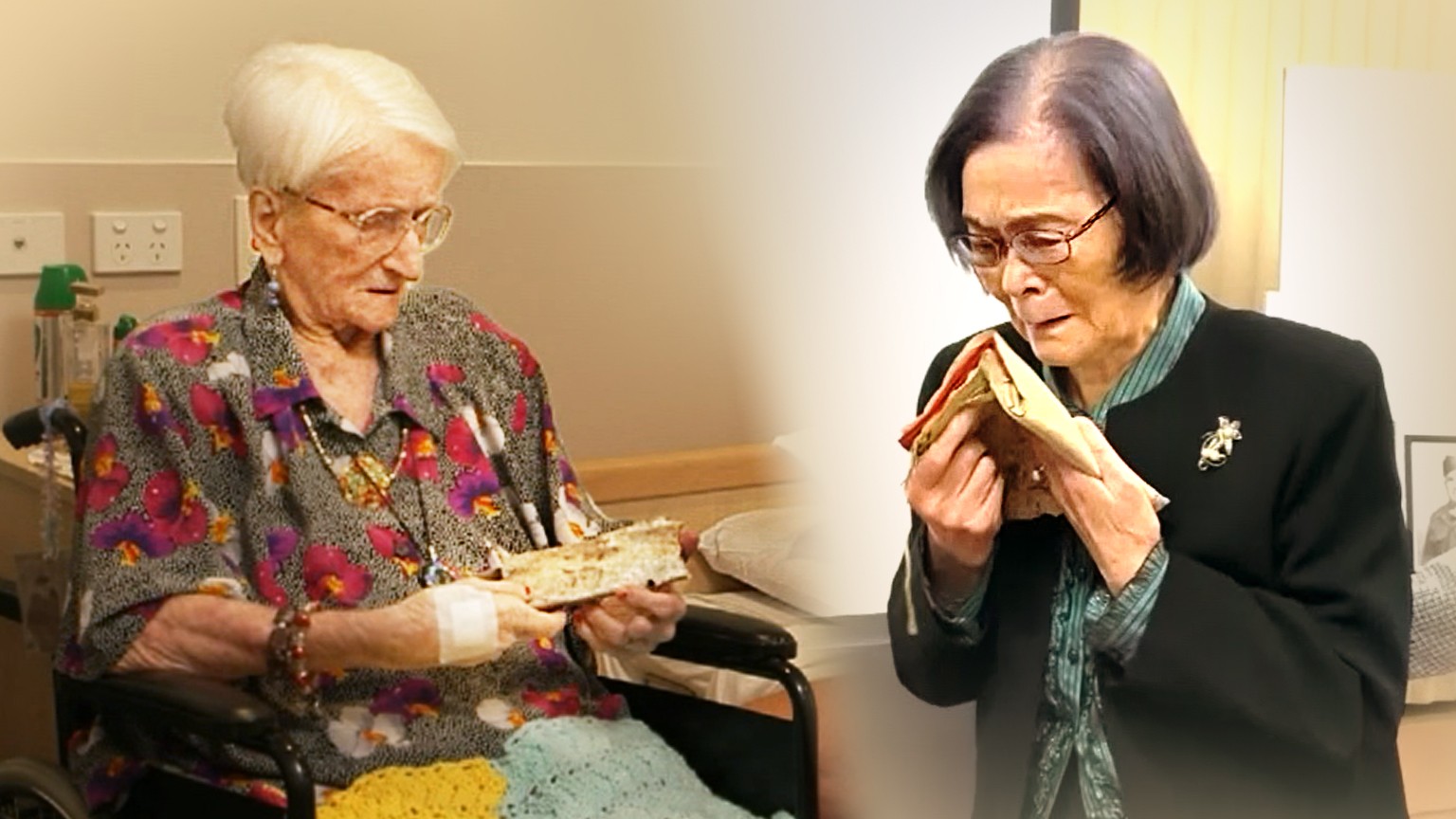A brother's final moments
Last year, a package from Germany arrived in Australia's northeastern state of Queensland, containing what looked like a piece of scrap metal.
But to 93-year-old Beryl West, it was priceless. The metal came from a British Lancaster bomber shot down in 1944, with her older brother aboard.
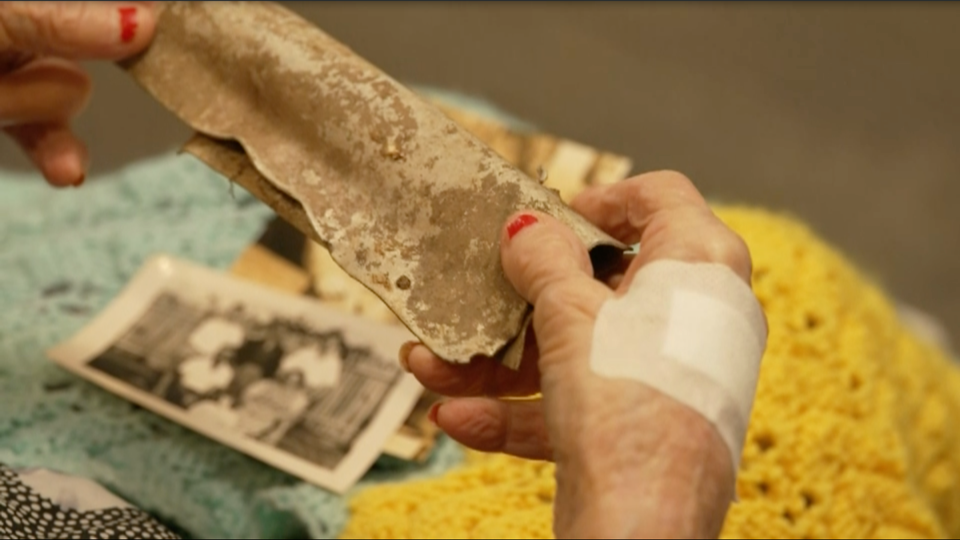
German forces downed the plane during an Allied raid against Berlin. All seven crew members were lost, including West's brother, 23-year old Australian flight lieutenant Frederick John King.

West was overcome with emotion as she held the metal piece in her hands. She has some problems with her memory, but her recollections of her beloved brother are clear.
"He treated me like a baby, you know. He was only a young man when he died. It was very sad. Of course, I love him."

West is yet to fulfill her long-held wish of visiting her brother's grave, but she says she will treasure the piece of his aircraft as a memento of his final moments.
Graves far from home
The metal fragment was sent by Philiphe Bezerra dos Santos, a second lieutenant on active duty in the German Air Force.
He has been tending the graves of the seven Allied crew members in Berlin's Commonwealth War Cemetery for the past eight years. Even though the men had fought against his country, Bezerra dos Santos felt a personal affinity with them after he noticed that they were shot down on a date that would later become his birthday.
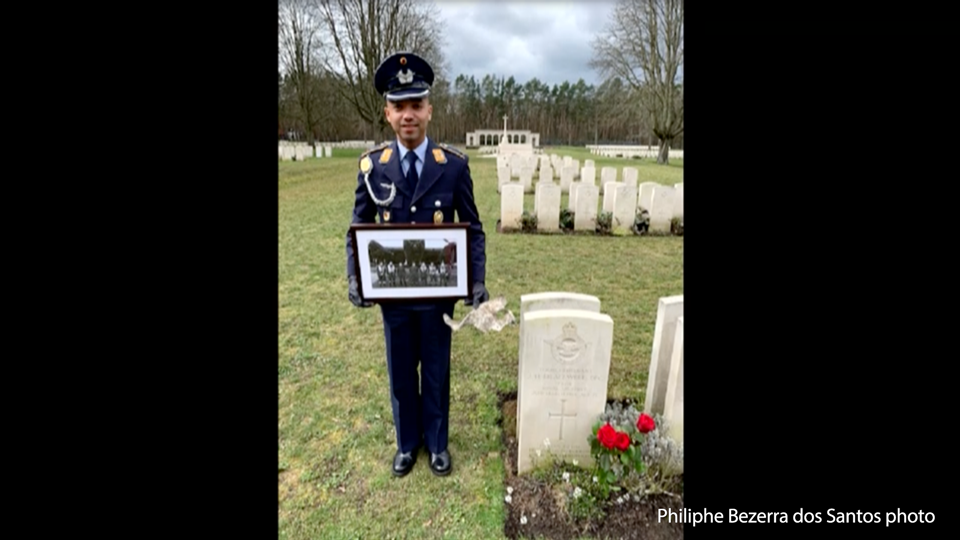
Bezerra dos Santos extensively researched the lost airmen and was able to locate some of their families. He reached out to a citizens' group, whose members excavated the crash site to retrieve some of the bomber's wreckage.
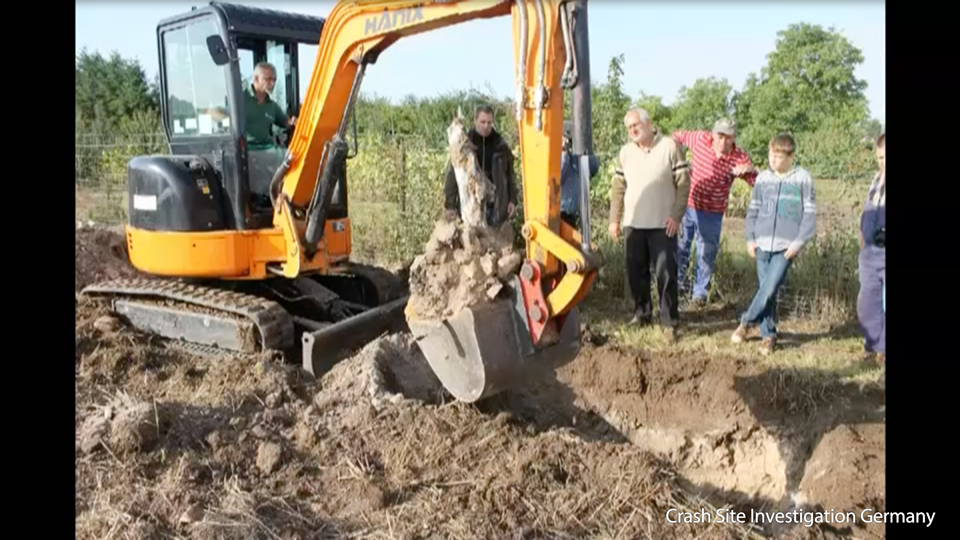
Bezerra dos Santos says, "All these gentlemen have been lying there for so long and nobody ever had a chance to visit them."
He says he hopes his efforts to retrieve and send pieces of their plane will help bring closure to families mourning relatives who "didn't have a chance to grow up and get married or enjoy life as they should have."
Return of a Japanese flag
A similar story unfolded half a world away, and in a different theater of the war.

Kodama Yoko, 91, said a final farewell to her brother Yoshihara Kazunori when he left their home in Sapporo, northern Japan, to serve his country. She described her brother, nine years older, as "quite handsome."
She remembers, "He was really caring about his family, his parents and siblings."
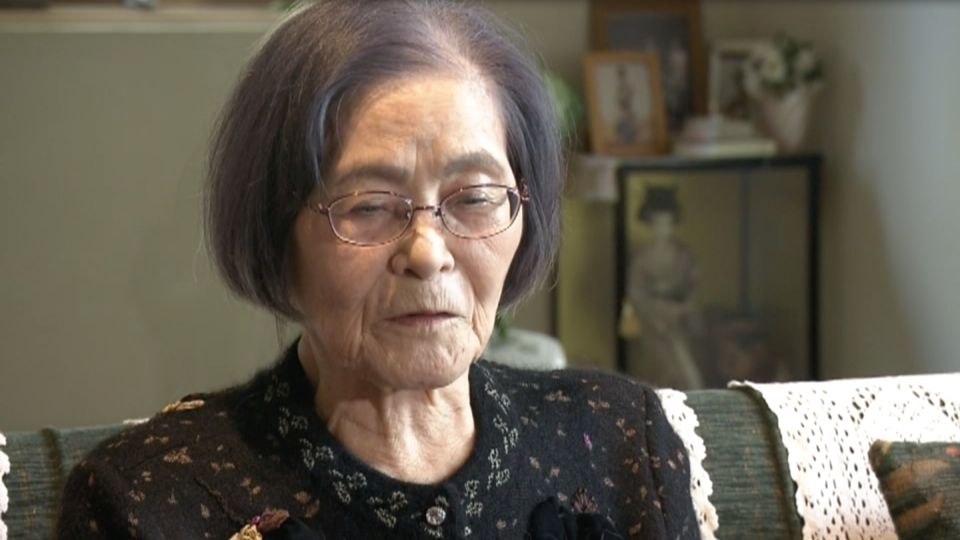
Yoshihara was 21 years old when he died in the Battle of Okinawa in 1945. Kodama remembers how the family was notified: no remains or belongings were delivered, just a plain wooden box.
"My mom said, 'Yoko, do you want to hold this?' and gave me the box. It rattled a bit. When I looked inside, I saw only a piece of stone, and that was it.''
This memory, and her brother's absence, cast a shadow for decades. But then an unexpected connection helped lift some of the sorrow.
NPO offers helping hand
An American man named Greg McCollum sent a message last year to Obon Society, a United States-based nonprofit organization that returns war relics to families.
"I want to return the flag that my late father brought back from war in Japan, to its original owner," it said.
The flag belonged to Kodama's brother, and it was adorned with messages from his colleagues.
Many men who were drafted to the now-defunct Imperial Japanese Army carried such flags into battle as good luck amulets.
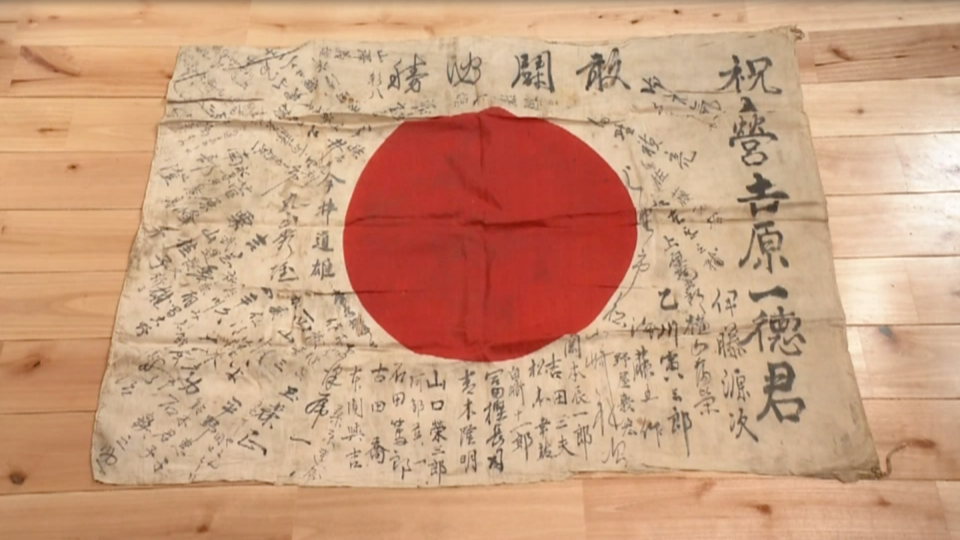
McCollum, 71, explained that his late father was a Marine who brought the flag to the US from Okinawa.
Obon Society was able to track down Kodama. And in December, McCollum and his family came to Sapporo, Japan, from their home in the US state of Georgia, to return it in person.
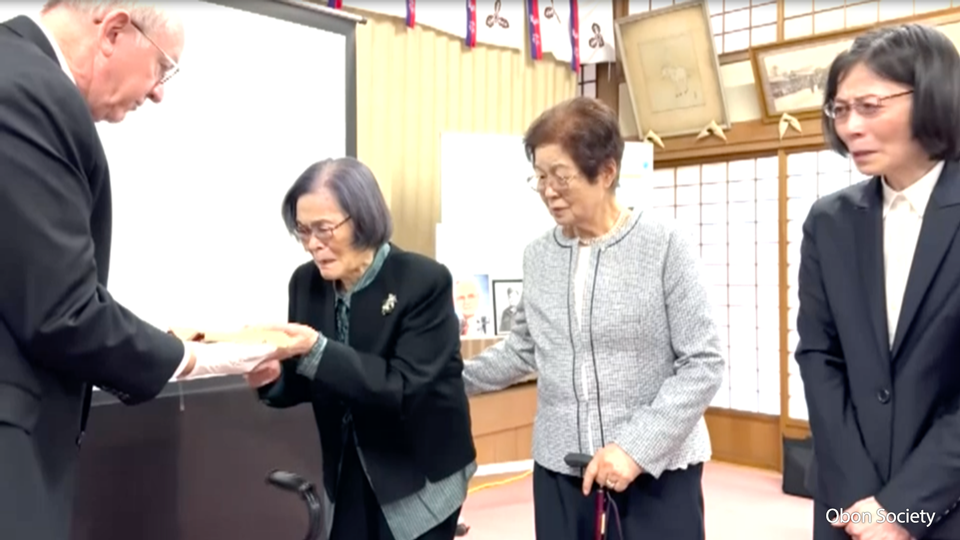
Kodama described the flag as "a treasure". "It represents the life of my dear brother," she said.
She then burst into tears, and turned to a photograph of her late mother to report her brother's "return". Kodama says her mother longed for her son and felt his absence more acutely than anyone else.
Closure for all involved
Kodama thanked McCollum for keeping the flag and said, "When I die, I will take it with me and hand it to my mother."

McCollum said returning the flag also helped ease some of the pain felt by his own family. He says his father died in 1994 without talking much about his experiences of the war, and that his silence weighed heavily on those around him.
He said the flag represented some closure: "We are gratified that we could play a small part in returning Mr. Yoshihara to his family."
We humans have sadly never lost our propensity to fight each other, despite the countless lives wasted across thousands of years. For proof, simply look at Russia's invasion of Ukraine and the worsening situation in the Middle East.
But that's not to say we should ever give up on the idea of peace, or the hope of fostering a lasting spirit of reconciliation.
The compassion of people like McCollum and Bezerra dos Santos, and the good deeds of Obon Society and the German citizens' group, shows we have the capacity to build new bridges and heal the scars of war.
